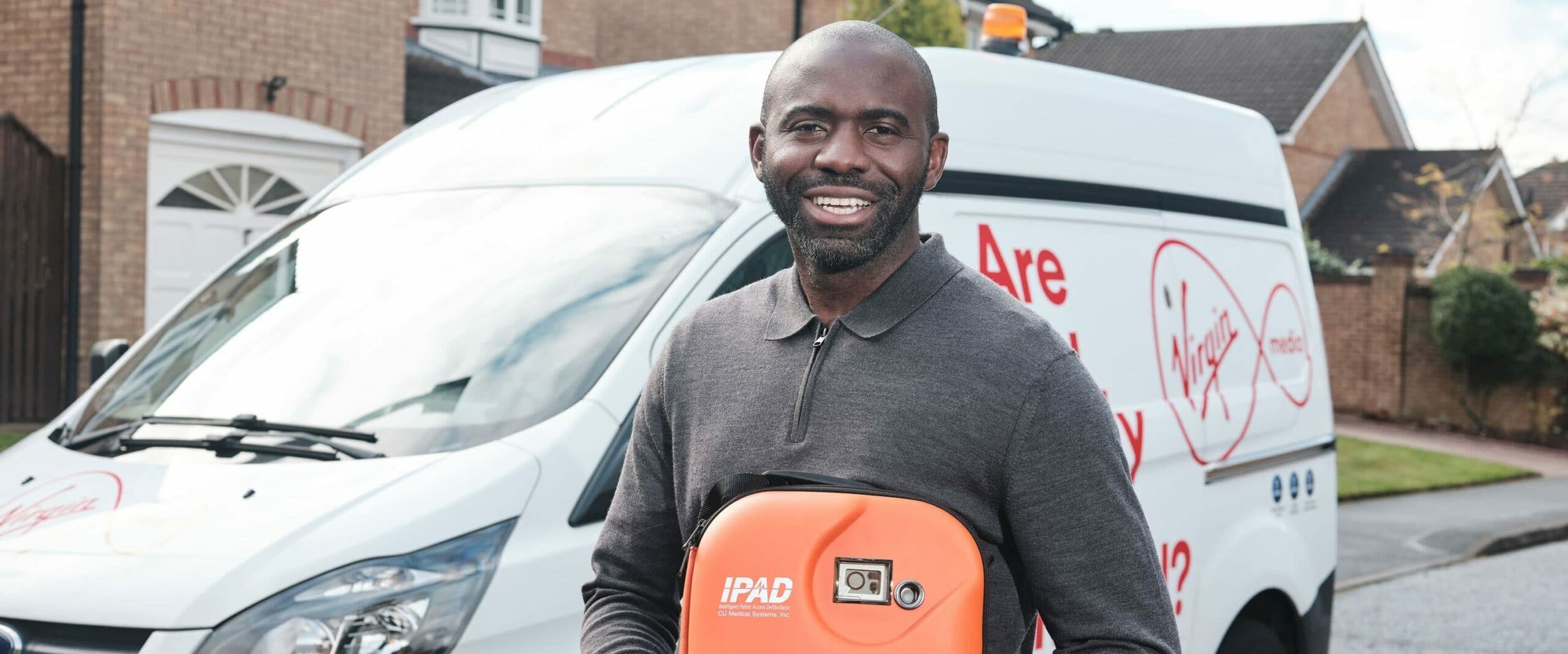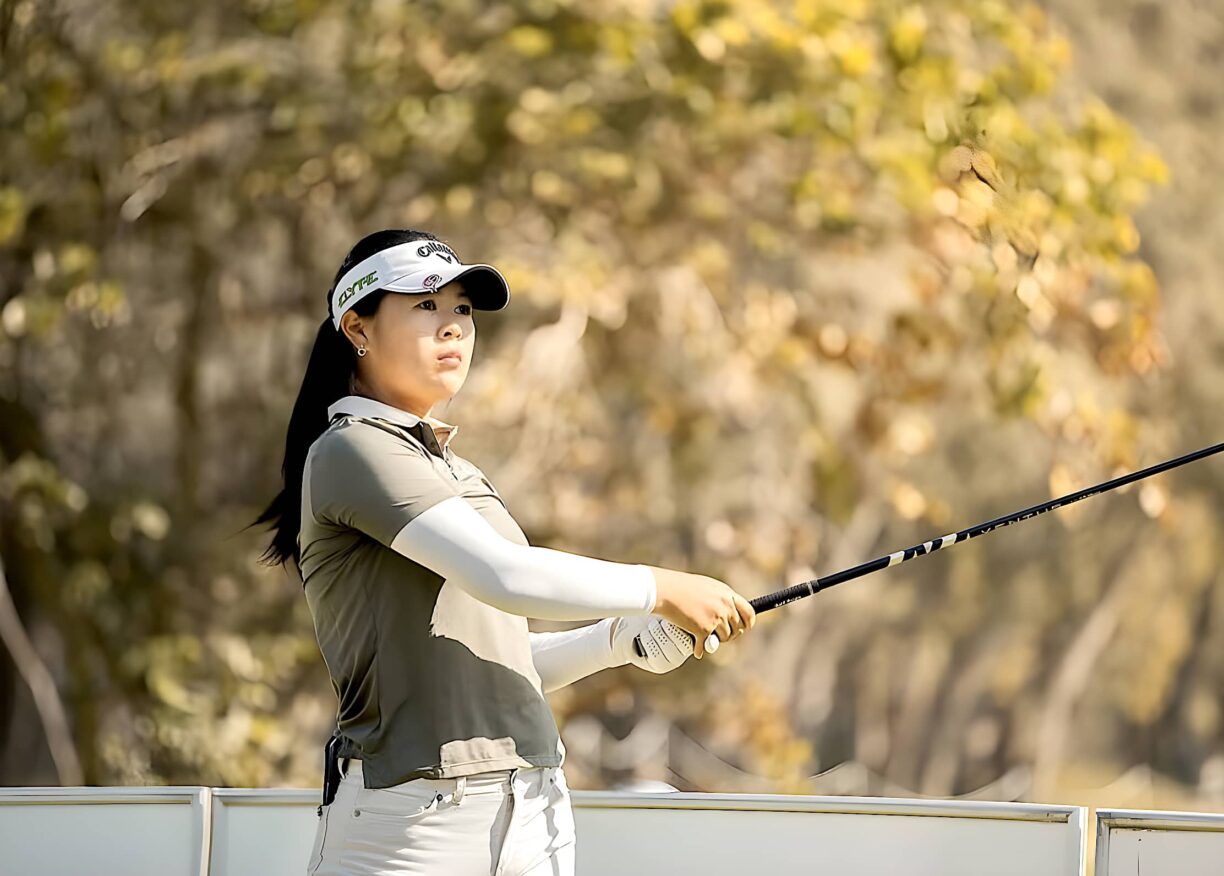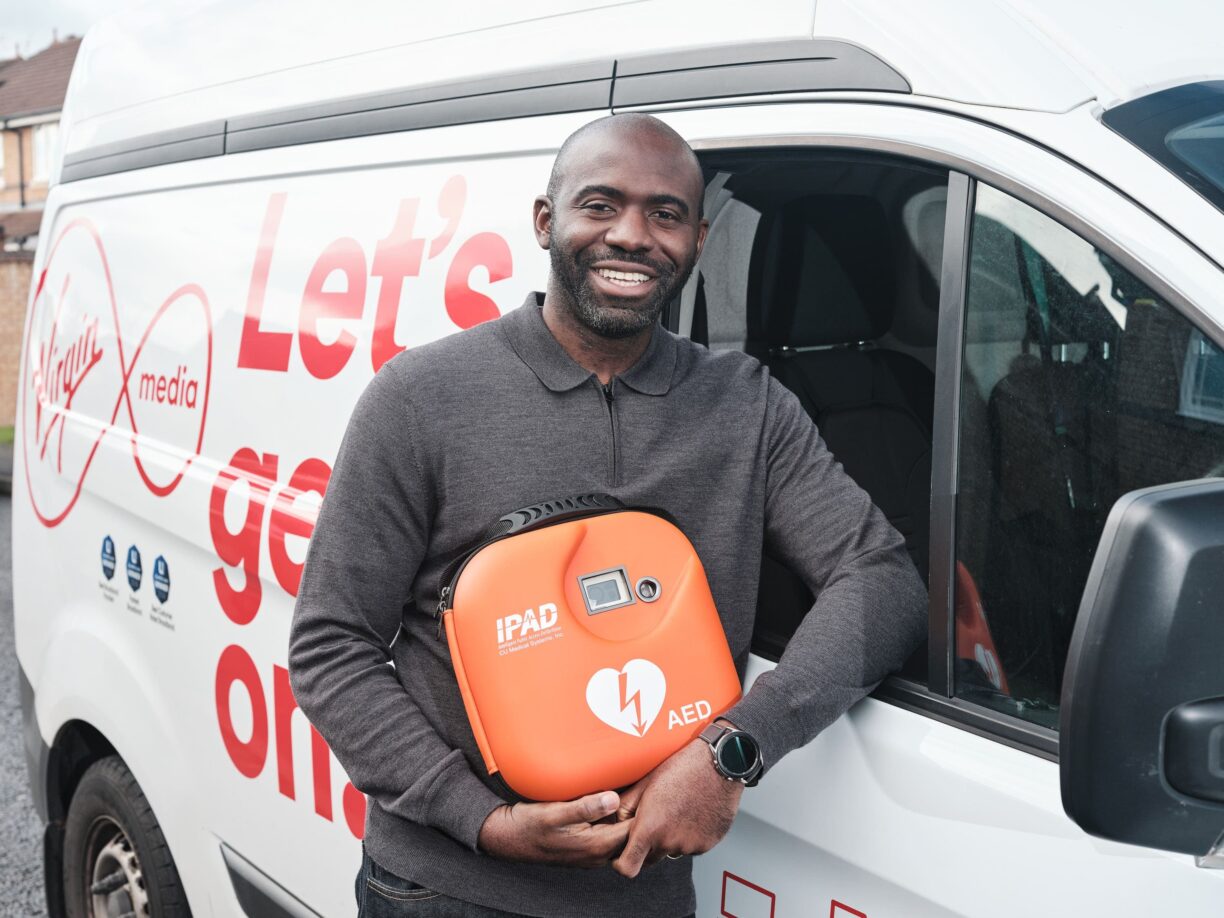
Most football fans will remember the shocking moment Fabrice Muamba collapsed on the pitch at White Hart Lane during the 2012 FA Cup quarter-final while playing for Bolton. At just 23 years old and at the peak of physical health, the young footballer suffered a cardiac arrest – his heart-stopping for 78 minutes in total.
His survival and recovery have since been hailed as remarkable, but two factors immediately increased his chances: the people with CPR know-how who jumped to his aid (one fan happened to be a consultant cardiologist), and the fact there was a defibrillator right at the scene. It was used within a minute of his cardiac arrest, Muamba says.
Nearly 10 years on, now a dad-of-four and married to wife Shauna, Muamba says he feels incredibly “lucky, thankful and grateful”.
The collective swift action, determination and decision-making of the pitch-side medical staff, Spurs fan and cardiologist Dr Andrew Deaner, paramedics and staff at the London Chest Hospital helped save his life.
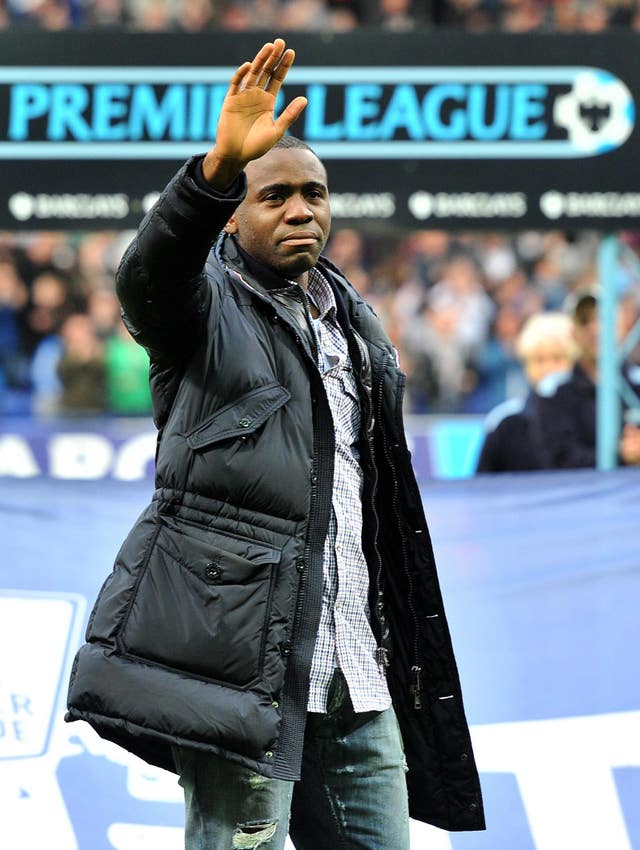
This summer it felt like history was repeating itself, when Denmark’s Christian Eriksen collapsed suffering a cardiac arrest during Euro 2020.
CPR was administered and a defibrillator was used, again helped by a doctor in the crowd – and thankfully he’s alive to tell the tale.
But a recent poll by Virgin Media found that while 89% of people say they’d help a stranger with a medical emergency ‘no matter what’, if it was a cardiac arrest, less than half (48%) would feel confident stepping in to use CPR.
The fear of getting it wrong was the biggest concern, with just 26% of people saying they know how to do both CPR and use a public access defibrillator.
That’s why Muamba, now 33, is backing a campaign by the British Heart Foundation and Virgin Media – who have trained 500 of their drivers in CPR and defibrillator use, as well as fitted defibrillators into company vehicles – to teach the skills more widely.
“It’s something that’s very personal to me and speaking from personal experience, I know how important it is to have good medical care, and also how vital a defibrillator was to my recovery,” Muamba says.
There are simply “not enough” public access defibrillators around, he adds: “Every minute you don’t have access to a defibrillator, it decreases the chance of surviving.
In the same way we have fire extinguishers in every single building, I think a portable defibrillator should be mandatory.”
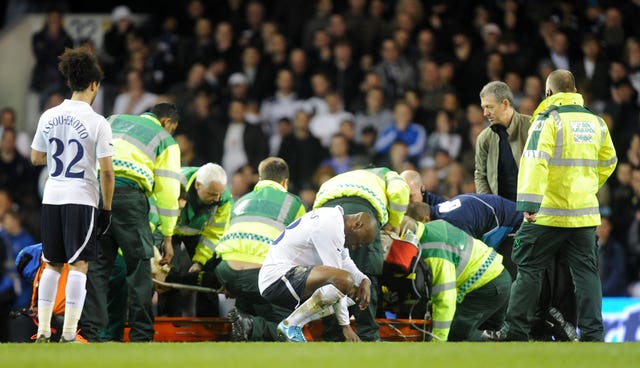
Muamba says we need to “remove the fear” of doing CPR. “It’s better to do it – even if you crack somebody’s rib – than be sorry you didn’t do it.”
Even children as young as eight to 10 can be taught it, he says. “Kids in school should learn how to do CPR. We should encourage people to invest [in a defibrillator] – because you never know what’s around the corner.”
You’d think the fitness levels required to be a professional athlete would help with recovery, but as he bluntly points out: “If I hadn’t had that medical care, we wouldn’t be talking about my physical condition.”
It doesn’t matter how fit you are, a cardiac arrest without CPR and/or a defibrillator would almost certainly be fatal. Muamba was given 15 defibrillator shocks in total – two pitch-side, one in the tunnel and 12 in the ambulance.
That game would be the last time he’d play professional football though. The sport had been a lifeline to him after arriving in the UK as a refugee from the Democratic Republic of Congo at age 11, without a word of English. He made friends through playing football.
“I didn’t know how big or deep of an issue it was until two or three weeks after,” he admits. “Me being me, I just said, ‘Yeah I’m fine! I’m OK!’
I couldn’t understand why people kept on coming in and seeing me all the time,” he recalls of the major health incident. “I thought in the morning, or a couple of days later, I’d be able to train and get back up north [to Bolton].”
It took a few weeks to really sink in how serious the situation had been, and the medical advice was to never play football at the same level again.
“In the beginning it was definitely tough. But as time goes on, you think of the bigger picture, because at the end of the day it isn’t about me anymore: I’ve got a young family I’ve got to look after. Health is the number one priority.
“I want to be here to enjoy my family. Not being here because I made a selfish decision to go back and play football? Actually, it’s best to walk away from it and just stay healthy.”
Since then, Muamba has completed a degree in sports journalism, moved into punditry, and coaches an under-16s side in Rochdale – which he says is important because he’s giving back to a sport that’s been good to him.
“I do play with my children in the garden,” he says, but he’d never be tempted to join in a game of five-a-side, for example. “I’d never put myself in that position.”
To stay fit, he swims twice a week, and adds: “If I’m going to be somewhere, I make sure there’s a defibrillator nearby.” In fact, it’s the first thing he checks when he walks into any building.
“If my accident had happened in my house 10 years ago, I don’t think I would be here,” says Muamba. “It happened in an environment where I had the best medical care I could have asked for – but not everyone is as lucky as me.”
Fabrice Muamba is working with Virgin Media as it launches one of the UK’s largest-ever mobile defibrillator rollout programmes, through its life-saving partnership with British Heart Foundation. See: virginmedia.com/

